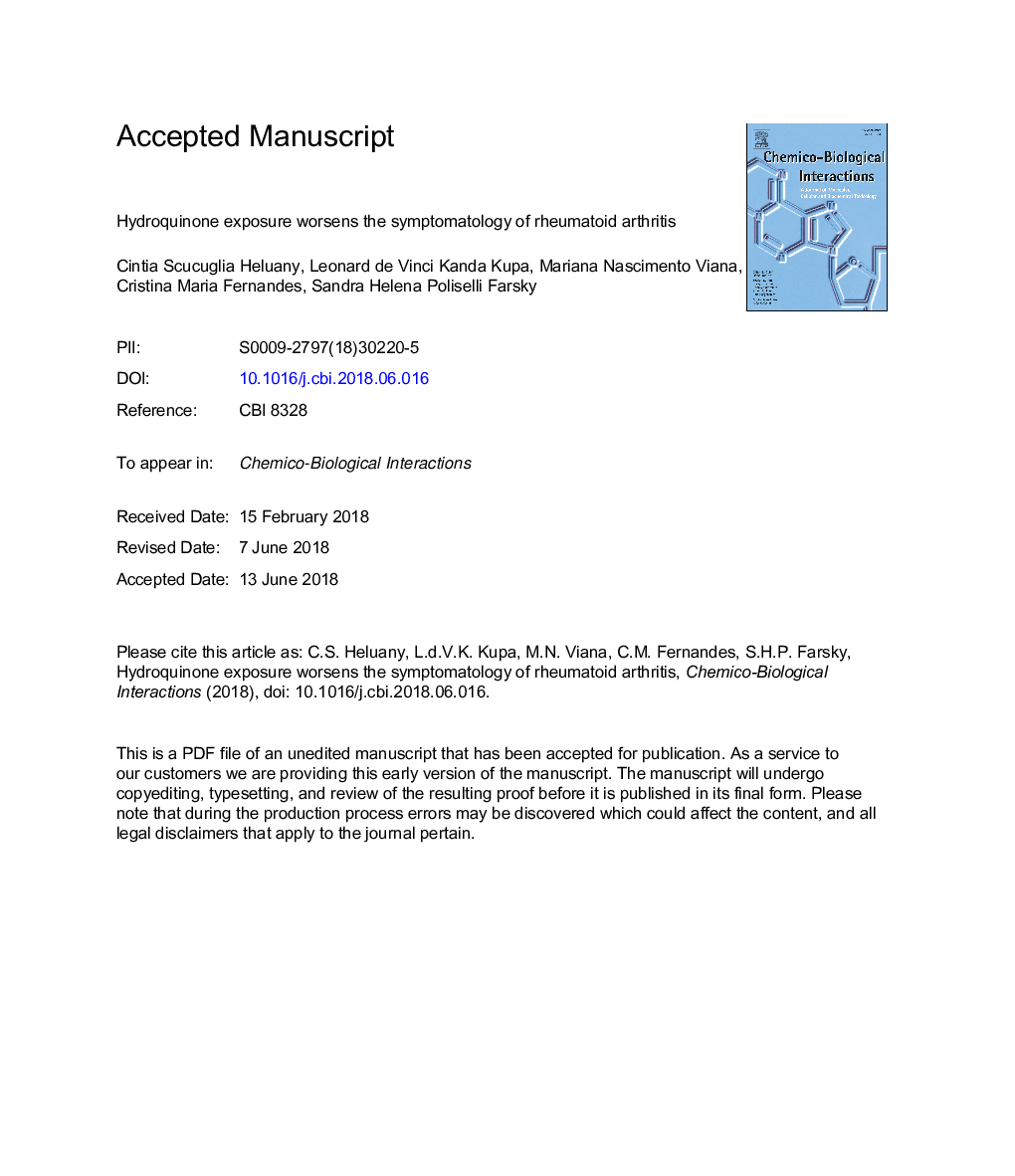| Article ID | Journal | Published Year | Pages | File Type |
|---|---|---|---|---|
| 8544558 | Chemico-Biological Interactions | 2018 | 35 Pages |
Abstract
The genesis of rheumatoid arthritis (RA) is complex and dependent on genetic background and exposure to environmental xenobiotic. Indeed, smoking is associated to developing and worsening pre-existing RA. Nevertheless, the mechanisms and cigarette compounds involved in the harmful processes have not been elucidated. Here, we investigated if the exposure to hydroquinone (HQ), an abundant pro-oxidative compound of cigarette and benzene metabolite, could worsen the ongoing RA. Hence, collagen-induced arthritis (CIA) was induced in male Wistar rats by s.c. injection of 400â¯Î¼g (200â¯Î¼L) of bovine collagen type II emulsified in complete Freund's adjuvant on day 1, and a booster injection was performed on day 7. Exposures to nebulized HQ (25â¯ppm), saline solution or HQ vehicle solution (5% ethanol in saline) were carried out for 1 h, once a day, on days 21-27 after CIA induction. On day 27, animals were euthanized and samples were collected for further analyses. Exposure to HQ caused loss of weight, intensified paw edema, enhanced levels of tumor necrosis factor-α (TNF-α) and anti-citrullinated protein antibody (ACPA) in the serum; augmented synoviocyte proliferation and influx of aril hydrocarbon receptor (AhR) positive cells into the synovial membrane, altered collagen fibre rearrangement in the synovia, and synoviocytes isolated from HQ exposed rats secreted higher levels of pro-inflammatory cytokines, TNF-α and interleukin-1β. Associated, we point out HQ as an environmental pollutant that aggravates RA, suggesting its participation on worsening RA in smoking patients.
Related Topics
Life Sciences
Environmental Science
Health, Toxicology and Mutagenesis
Authors
Cintia Scucuglia Heluany, Leonard de Vinci Kanda Kupa, Mariana Nascimento Viana, Cristina Maria Fernandes, Sandra Helena Poliselli Farsky,
